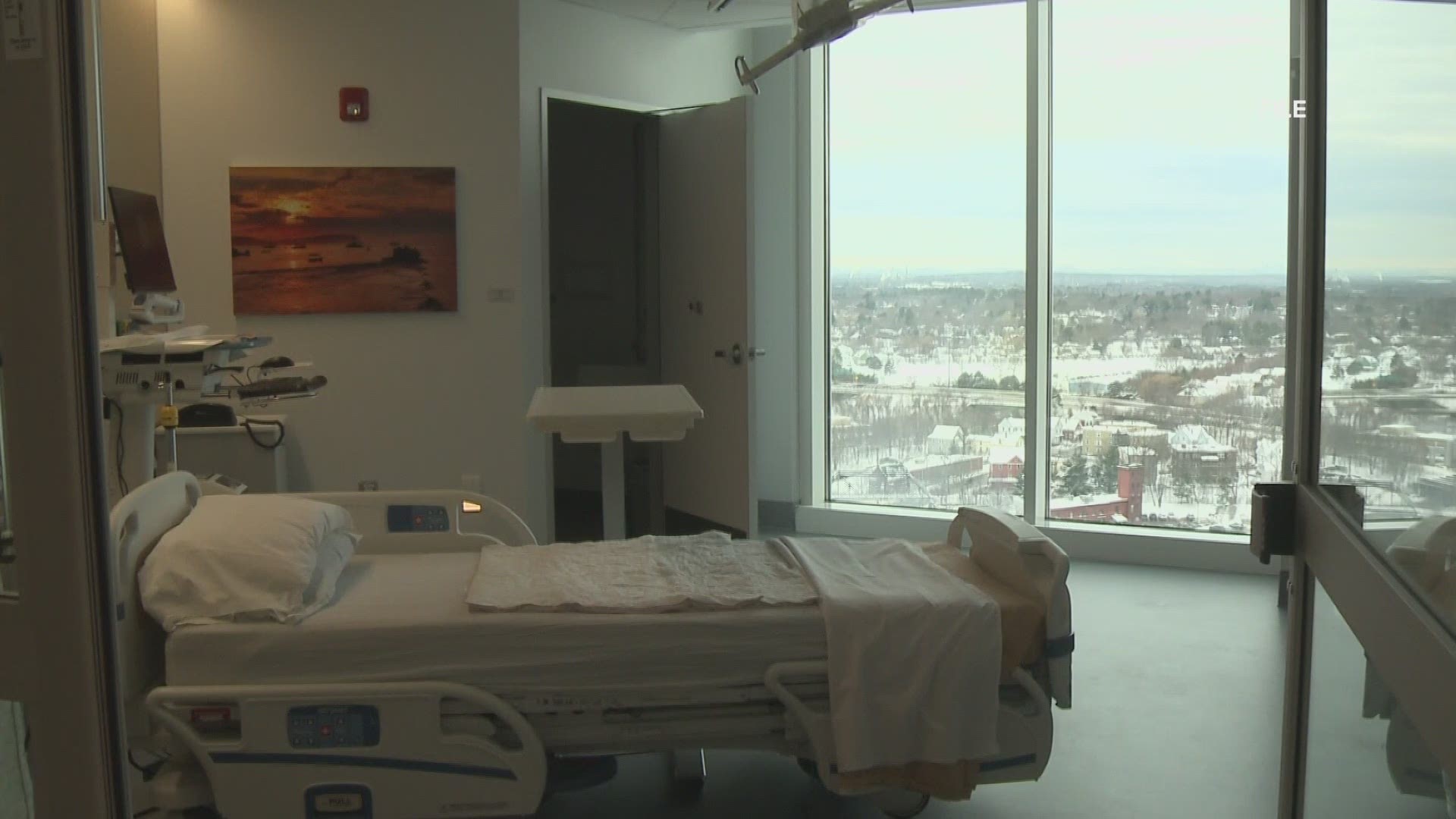MAINE, USA — According to the Occupational Safety and Health Administration (OSHA), healthcare workers are at a higher risk of workplace violence. And many incidents are not reported.
Incidents of workplace violence requiring time off for injuries have been on the rise for 20 years across the nation, including in Maine and a nurse in Maine who says he was a victim of assault is sharing his story.
"Out of the corner of my eye I saw a fist coming around and then, things went pretty black," a registered nurse said recalling his assault.
This nurse has agreed to share his story but has declined to be identified after being assaulted by a patient last month.
"I left with the diagnosis of assault," he said.
This nurse is like many other healthcare workers, according to OSHA, violence in the workplace is very common for healthcare professionals. Many times in the emergency departments.
OSHA attributes this to crowded emergency departments, emotional situations, patients who may be involved with crime, or who might be having a psychiatric emergency.
Jeff Austin is the vice president of government affairs and communications at the Maine Hospital Association. He says these incidents are common here in Maine, too.
"It is the most common form of workplace violence in America," he said.
He says the association sees these assaults, but healthcare workers rarely report these assaults, especially if there's a mental health issue.
More than 30 years ago, the Emergency Medical Treatment and Labor Act (EMTALA) was passed.
EMTALA is a federal law that requires anyone coming to an emergency department to be stabilized and treated, regardless of their insurance status or ability to pay, but since its enactment in 1986 has remained an unfunded mandate.
Therefore, emergency department workers have to treat everyone who comes through the doors, no matter what.
Police, fire, long-term care facilities, and family members can drop patients who are violent and experiencing a mental health crisis off at any hospital.
"They can all drop them off at the emergency room and they know we can't... and wouldn't ever... just turn our back on them," Austin said.
According to a study published earlier this year in the National Institute of Health, healthcare workers in California are working to close the "EMTALA Loophole" which leaves mental health patients in emergency departments day after day, even if they are not physically sick and are stable enough to go home for a long term care facility.
This is because psychiatric care facilities can decide NOT to accept violent patients. Here in Maine, the nurse who shared his story says incidents like his could be prevented with things like additional training and staff.
We've reported on the nursing shortage here in Maine which contributes to these staffing problems. The Maine Hospital Association says the shortage is really not a nursing shortage, but instead a nursing teacher shortage. There aren't enough teachers to educate everyone who wants to be a nurse.
"Through my five years of training in the ER I've had less than four hours of mental health training," he said.
He added that healthcare workers need to share their stories of abuse and keep talking about it, in order to change it.
That change includes talking to elected officials in order to propose legislative changes.
Hospital leaders have started doing just that, with the last session proposing two bills to state legislators.
An Act to Protect Hospital Employees from Assault which states, a person is guilty of assault on a health care practitioner or hospital employee or contractor if that person intentionally, knowingly or recklessly causes bodily injury to a health care practitioner while that health care practitioner is providing medical care or to a hospital employee or person working for a hospital on a contractual basis while that employee or person is performing duties related to the provision of care for a patient or a prospective patient.
And An Act to Protect the Safety of Healthcare Workers stating, a person is guilty of assault on a health care practitioner or hospital employee or 6 contractor if that person intentionally, knowingly or recklessly causes bodily injury to a 7 health care practitioner while that health care practitioner is providing medical care or to 8 a hospital employee or person working for a hospital on a contractual basis while that 9 employee or person is performing duties related to the provision of care for a patient or a 10 prospective patient.
These bills were both voted down because healthcare workers are often not pressing charges against patients who assault them.
"You get rude in a restaurant, they throw you out. You get rude in a hospital, they still care for you," Austin said.
Healthcare workers and officials in the industry want to see a change in order to continue to care for patients in need, while also keeping themselves safe.
Advocates for healthcare workers are hopeful when the legislation is back in session, they will be able to propose other bills to keep healthcare workers safe.

